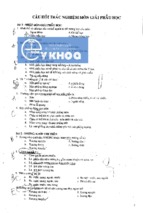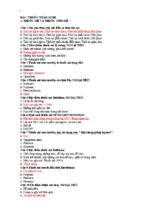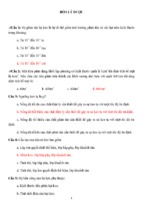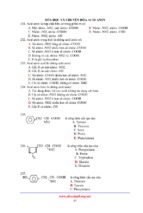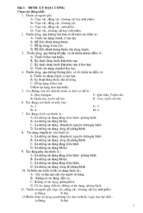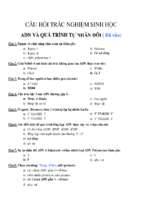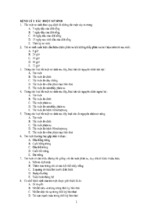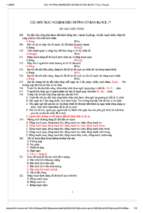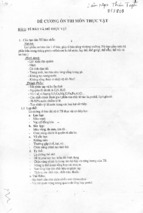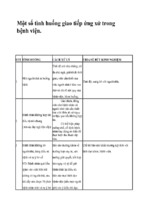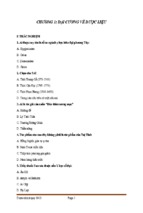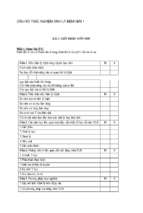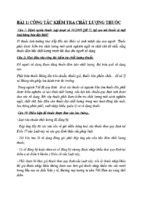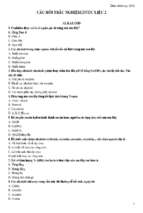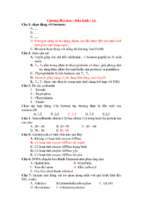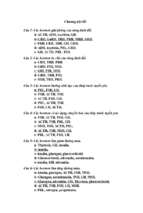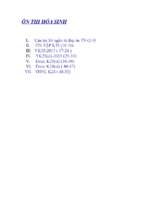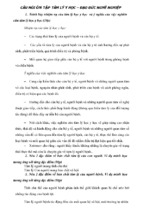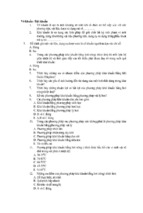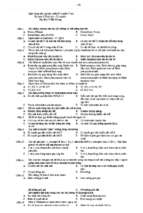Medical English
R. Ribes ´ P. R. Ros
RamÕn Ribes ´ Pablo R. Ros
Medical English
12
RamÕn Ribes, MD, PhD
Hospital Reina Sofia
Servicio de RadiologÌa
Avda. Menndez Pidal s/n.
CÕrdoba 14005, Spain
Pablo R. Ros, MD, MPH
Professor of Radiology, Harvard Medical School
Executive Vice Chairman and Associate Radiologist-in-Chief,
Brigham and Women's Hospital
Chief, Division of Radiology, Dana-Farber Cancer Institute
Harvard Medical School
75 Francis St.
Boston, MA 02115, USA
ISBN-10 3-540-25428-5 Springer Berlin Heidelberg New York
ISBN-13 978-3-540-25428-7 Springer Berlin Heidelberg New York
Library of Congress Control Number: 2005928947
This work is subject to copyright. All rights are reserved, whether the whole or part of the material is
concerned, specifically the rights of translation, reprinting, reuse of illustrations, recitation, broadcasting, reproduction on microfilm or in any other way, and storage in data banks. Duplication of this publication or parts thereof is permitted only under the provisions of the German Copyright Law of
September 9, 1965, in its current version, and permission for use must always be obtained from SpringerVerlag. Violations are liable for prosecution under the German Copyright Law.
Springer is a part of Springer Science+Business Media
springeronline.com
° Springer-Verlag Berlin ´ Heidelberg 2006
Printed in Germany
The use of general descriptive names, registered names, trademarks, etc. in this publication does not
imply, even in the absence of a specific statement, that such names are exempt from the relevant protective laws and regulations and therefore free for general use.
Editor: Dr. Ute Heilmann, Springer-Verlag
Desk Editor: Wilma McHugh, Springer-Verlag
Production: Pro Edit GmbH, Elke Beul-Gæhringer, Heidelberg, Germany
Typesetting: K+V Fotosatz GmbH, Beerfelden
Cover design: Estudio Calamar, F. Steinen-Broo, Pau/Girona, Spain
24/3151/beu-gæh ± 5 4 3 2 1 0 ± Printed on acid-free paper
To my father, RamÕn Ribes Blanquer,
for teaching me to seize every moment of life.
R. Ribes
To Silvia . . .
My guide, my love, my life.
P. R. Ros
Foreword
It has been a long time since English became the language of science. Today,
in modern medical practice, and here I include all specialties, medical professionals are constantly exposed, either when searching the literature or attending meetings, to the English language. The scientific importance of English is
such that, whenever I have a meeting with my residents ± and I have many,
both residents and meetings ± I find myself emphasizing, over and over
again, the need for them to learn English. I may be exaggerating, but I do
think that unless you know enough English to read the medical literature,
it is almost impossible to keep up to date with medical advances. I honestly
feel that English should be a compulsory subject at medical school.
Whenever I attend international medical meetings, and see how some
colleagues struggle, not only in trying to converse with their Englishspeaking counterparts but also in trying to understand their lectures, I
strongly feel that we should try to do something to prevent this from happening in future generations.
Many of us who completed our medical training in English-speaking
countries still remember how much we suffered during our first weeks on
call. Local idioms and colloquialisms on the one hand, and medical abbreviations on the other, drove us to the brink of despair. This work is like a
breath of fresh air with regard to the idiomatic problem affecting so many
of our young, and not so young, doctors. This book will not only help
them to improve their English but will also introduce them to the world of
medical jargon. I wish I had had such a book when, as a young resident, I
had to present a case, or even later on, when I was first asked to chair a
session at an international English-speaking meeting! This volume would
have been a godsend in both situations, and in many others. I am confident that in the near future many health care professionals will benefit
from the book. Here I mean not only those who work in the Englishspeaking world but also those practicing in their own countries.
I sincerely congratulate the authors on writing such a necessary book,
which will certainly improve the linguistic training of many doctors. It was
a pleasure for me to review the manuscript and it has been a great honor
to write this foreword. I wish I could have written such a book myself.
Dr. Javier Lucaya
Chairman of Radiology, Vall d'HebrÕn Hospital, Barcelona, Spain, July 2005
Preface
The need for English as a professional language in medicine is nowadays
beyond doubt. Scientific literature and the internet are just two examples
that reveal the overriding necessity for understanding and expressing ourselves in written and spoken English.
The formal teaching of English, overloaded to excess with theoretical
content, does not enable us to keep in touch, using English as a common
language, with other professionals abroad, and thus development opportunities are continually wasted. With this manual, we intend to help overcome this state of affairs.
Most interns and staff members withdrew from the formal learning of
English a long time ago, and English has become an everlasting failed subject. Only the most determined have continued studying, with more tenacity than method, but unfortunately, in most cases with little if any success.
Many colleagues have thrown in the towel. Many have desisted from attending, if indeed they ever tried to attend, international courses and congresses, and among the reduced group of those who dare, participation is
very limited on most occasions.
It is true that both components of language, sensory and motor, have to
be integrated into our brain from childhood, if not, then the older we get,
the less natural language learning becomes. It is no less true that the conviction that the use of English will bring extraordinary advantages may become a strong extra motivation. The US President William J. Clinton said,
on a certain occasion, that in the future, mankind could be divided into
ªeducated and non-educated peopleº, and that the imaginary boundary that
would separate the two worlds would be knowledge of English and computers.
No-one would pretend that non-English-speaking physicians could be,
in the use of their mother tongue, up to their North American and British
colleagues. But that is no obstacle to achieving a level comparable to that
of other colleagues coming from countries other than English-speaking
countries.
With this manual, we intend to turn what until now has been considered
a wearisome task into an amusing close-up inside professional medical
English, but also bearing in mind that no result is achieved without effort.
The classic manual entitled ªEnglish without effortº should, in our opinion,
be changed to ªEnglish without sacrificeº.
X
Preface
We recommend a thorough study of the unit ªGrammar in Useº, which
was created using medical terminology, because without such practical
grammar notions, we cannot build up our knowledge of English. Our aim
should not be just to make ourselves understood, but to do so at the appropriate levels of fluency and correctness.
It is obvious that using English outside English-speaking countries entails an additional effort in keeping ourselves up to date. The international
press, movies (original versions are recommended or, for intermediate levels, subtitles in English) and cable television are useful allies. Without
them, English will keep on being that reviled failed subject. Following international news through British and American news bulletins allows us to
optimize our time and welcome English into our tight schedule as well as
to receive useful information.
For many years, I have kept in touch with written and spoken English,
although at a distance, through buying an American or British newspaper
once a week, daily cable TV news reports and original version movies at
the weekends. But without any doubt, the greatest stimulus came through
my six month rotation at the Brigham and Women's Hospital (Harvard
Medical School) at Boston, Massachusetts, as a research fellow.
Only through assisting at international meetings, courses and lectures,
can the use of English as a professional language be perceived as a pressing
need, thus making possible maintenance of the motivation required for this
hard task.
As in many other subjects, the study that initially demands a high level
of discipline may, as the learning goes on, become something agreeable,
and the need to study may, for those who are enthusiastic, turn into devotion.
RamÕn Ribes, MD, PhD
July 2005
Preface
As a non-native English speaker, practicing medicine in the United States
for many years, I am delighted Medical English is seeing the light. I can vividly remember the fear I had when at the beginning of my residency I
had to dictate complex radiology reports in English! I realized the importance of language accuracy so that the appropriate imaging findings were
described in the report and the final diagnosis was correctly stated. Appropriate wording obviously needed to convey the message to the referring
clinicians so patients could have adequate management.
The next step was to conquer public speaking in English! This started
with presenting interesting cases in small groups, later in interdisciplinary
conferences, and eventually lecturing to other colleagues and trainees with
audiences of variable size.
Since I chose an academic career, I have had the opportunity to train
many physicians and many of them have been, like me, non-native English
speakers. Maybe because we have had this point in common it has been
easier for me to try to help in the way they communicate in English.
I like to teach proper English construction and pronunciation to our
non-native English speaking trainees. Since in medicine there are many
terms written similarly but pronounced differently in languages other than
English, it is easy to get confused. As was done for me when I was a resident, I like to write on a piece of paper words that our trainees mispronounce or sentences that are not in proper English. Then I ask the non-native English speaking physician to read out loud the word or the sentence
and make corrections. By the same token I am pleased when a native English speaker is kind enough to tell me words I still mispronounce or sentences I misconstruct.
Therefore, when Dr. Ramon Ribes was a research fellow working with
me a few years ago and discussed the idea of putting together this manual,
I was engaged by it and gave my full support.
Now, Medical English is a reality and we hope our readers will find it
both useful and fun. The idea is to condense in an easy to read volume the
knowledge and the experience accumulated trying to practice medicine in
English. Enjoy it!
Pablo R. Ros, MD, MPH
July 2005
Contents
Unit I
Reading, Listening, Talking and Writing. Self-evaluation
Introduction
Exercise 1 . .
Exercise 2 . .
Exercise 3 . .
Exercise 4 . .
Exercise 5 . .
Exercise 6 . .
Exercise 7 . .
.
.
.
.
.
.
.
.
.
.
.
.
.
.
.
.
.
.
.
.
.
.
.
.
.
.
.
.
.
.
.
.
.
.
.
.
.
.
.
.
.
.
.
.
.
.
.
.
.
.
.
.
.
.
.
.
.
.
.
.
.
.
.
.
.
.
.
.
.
.
.
.
.
.
.
.
.
.
.
.
.
.
.
.
.
.
.
.
.
.
.
.
.
.
.
.
.
.
.
.
.
.
.
.
.
.
.
.
.
.
.
.
.
.
.
.
.
.
.
.
.
.
.
.
.
.
.
.
.
.
.
.
.
.
.
.
.
.
.
.
.
.
.
.
.
.
.
.
.
.
.
.
.
.
.
.
.
.
.
.
.
.
.
.
.
.
.
.
.
.
.
.
.
.
.
.
.
.
.
.
.
.
.
.
.
.
.
.
.
.
.
.
.
.
.
.
.
.
.
.
.
.
.
.
.
.
.
.
.
.
.
.
.
.
.
.
.
.
.
.
.
.
.
.
.
.
.
.
.
.
.
.
.
.
.
.
.
.
.
.
.
.
.
.
.
.
.
.
.
.
.
.
.
.
.
.
.
.
.
.
.
.
.
.
.
.
.
.
.
.
.
.
.
.
.
.
.
.
.
.
.
.
.
.
.
.
.
.
.
.
.
.
.
.
.
.
.
.
.
.
.
.
.
.
.
.
.
.
.
.
.
.
.
.
.
.
.
.
.
.
.
.
.
.
.
.
.
.
.
.
.
.
.
.
.
.
.
.
.
.
.
.
.
.
.
.
.
.
.
.
.
.
3
7
8
8
8
9
9
9
.
.
.
.
.
.
.
.
.
.
.
.
.
.
.
.
.
.
.
.
.
.
.
.
.
.
.
.
.
.
.
.
.
.
.
.
.
.
.
.
.
.
.
.
.
.
.
.
.
.
.
.
.
.
.
.
.
.
.
.
.
.
.
.
.
.
.
.
.
.
.
.
.
.
.
.
.
.
.
.
.
.
.
.
.
.
.
.
.
.
.
.
.
.
.
.
.
.
.
.
.
.
.
.
.
.
.
.
.
.
.
.
.
.
.
.
.
.
.
.
.
.
.
.
.
.
.
.
.
.
.
.
.
.
.
.
.
.
.
.
.
.
.
.
.
.
.
.
.
.
.
.
.
.
.
.
.
.
.
.
.
.
.
.
.
.
.
.
.
.
.
.
.
.
.
.
.
.
.
.
.
.
.
.
.
.
.
.
.
.
.
.
.
.
.
.
.
.
.
.
.
.
.
.
.
.
.
.
.
.
.
.
.
.
.
.
.
.
.
.
.
.
.
.
.
.
.
.
.
.
.
.
.
.
.
.
.
.
.
.
.
.
.
.
.
.
.
.
.
.
.
.
.
.
.
.
.
.
.
.
.
.
.
.
.
.
.
.
.
.
.
.
.
.
.
.
.
.
.
.
.
.
.
.
.
.
.
.
.
.
.
.
.
.
.
.
.
.
.
.
.
.
.
.
.
.
.
.
.
.
.
.
.
.
.
.
.
.
.
.
.
.
.
.
.
.
.
.
.
.
.
.
.
.
.
.
.
.
.
.
.
.
.
.
.
.
.
.
.
.
.
.
.
.
.
.
.
.
.
.
.
.
.
.
.
.
.
.
.
.
.
.
.
.
.
.
.
.
.
.
.
.
.
.
.
.
.
.
.
.
.
.
.
.
.
.
.
.
.
.
.
.
.
.
.
.
.
.
.
.
.
.
.
.
.
.
.
.
.
.
.
.
.
.
.
.
.
.
.
.
.
.
.
.
.
.
.
.
.
.
.
.
.
.
.
.
.
.
.
.
.
.
.
.
.
.
.
.
.
.
.
.
.
.
.
.
.
.
.
.
.
.
.
.
.
.
.
.
.
.
.
.
.
.
.
.
.
.
.
.
.
.
.
.
15
15
26
32
36
39
42
44
48
51
52
55
61
Unit II
Grammar in Use
Introduction . . .
Tenses . . . . . . .
Modal Verbs . . .
Conditionals . . .
Passive Voice . .
Reported Speech
Questions . . . . .
Infinitive/-Ing . .
Articles . . . . . .
Word Order . . .
Relative Clauses
Adjectives . . . . .
Prepositions . . .
.
.
.
.
.
.
.
.
.
.
.
.
.
.
.
.
.
.
.
.
.
.
.
.
.
.
.
.
.
.
.
.
.
.
.
.
.
.
.
XIV
Contents
Unit III
Scientific Literature
Writing an Article . . . . . . . . . . . . . . . . . . . . . . . . . . . . . . . . . . . . . . .
Letters . . . . . . . . . . . . . . . . . . . . . . . . . . . . . . . . . . . . . . . . . . . . . . . .
67
86
Unit IV
Talks and Courses
Introduction . . . . . .
Course Example . . .
General Information
Local Information .
Giving a Talk . . . . .
.
.
.
.
.
.
.
.
.
.
.
.
.
.
.
.
.
.
.
.
.
.
.
.
.
.
.
.
.
.
.
.
.
.
.
.
.
.
.
.
.
.
.
.
.
.
.
.
.
.
.
.
.
.
.
.
.
.
.
.
.
.
.
.
.
.
.
.
.
.
.
.
.
.
.
.
.
.
.
.
.
.
.
.
.
.
.
.
.
.
.
.
.
.
.
.
.
.
.
.
.
.
.
.
.
.
.
.
.
.
.
.
.
.
.
.
.
.
.
.
.
.
.
.
.
.
.
.
.
.
.
.
.
.
.
.
.
.
.
.
.
.
.
.
.
.
.
.
.
.
.
.
.
.
.
.
.
.
.
.
.
.
.
.
.
.
.
.
.
.
.
.
.
.
.
.
.
.
.
.
.
.
.
.
.
.
.
.
.
.
91
91
96
96
97
What Can Go Wrong . . . Nightmares That Don't Come True
English Grammar . . . . . . . . . . . . . . . . . . . . . . . . . . . . . . . .
Misnomers and False Friends . . . . . . . . . . . . . . . . . . . . . . .
Common Basic Mistakes . . . . . . . . . . . . . . . . . . . . . . . . . .
.
.
.
.
.
.
.
.
.
.
.
.
.
.
.
.
.
.
.
.
.
.
.
.
.
.
.
.
.
.
.
.
107
108
109
111
.
.
.
.
.
.
.
.
.
.
.
.
.
.
.
.
.
.
.
.
.
.
.
.
.
.
.
.
.
.
.
.
117
117
118
119
Unit V
Some of the Most Frequent Mistakes
Made by Doctors Speaking in English
Unit VI
Latin and Greek Terminology
Introduction . . .
Plural Rules . . .
Exercises . . . . .
List of Latin and
.....
.....
.....
Greek
....................
....................
....................
Terms and Their Plurals
.
.
.
.
.
.
.
.
.
.
.
.
.
.
.
.
.
.
.
.
.
.
.
.
.
.
.
.
.
.
.
.
Contents
Unit VII
Acronyms and Abbreviations
Introduction . . . . . . . . . . . . . . . . . . . . . . . . . . . . . . . . . . . . . . . . . . . .
Common Sentences Containing Abbreviations . . . . . . . . . . . . . . . . . .
Abbreviation Lists . . . . . . . . . . . . . . . . . . . . . . . . . . . . . . . . . . . . . . .
135
138
142
Unit VIII
The Clinical History
Communication Skills . . . . . . . . . . . . . . . . . . .
The Chart . . . . . . . . . . . . . . . . . . . . . . . . . . . . .
Taking a Clinical History . . . . . . . . . . . . . . . . .
Patient Examination . . . . . . . . . . . . . . . . . . . . .
Special Examinations and Laboratory Findings
Case History . . . . . . . . . . . . . . . . . . . . . . . . . . .
.
.
.
.
.
.
.
.
.
.
.
.
.
.
.
.
.
.
.
.
.
.
.
.
.
.
.
.
.
.
.
.
.
.
.
.
.
.
.
.
.
.
.
.
.
.
.
.
.
.
.
.
.
.
.
.
.
.
.
.
.
.
.
.
.
.
.
.
.
.
.
.
.
.
.
.
.
.
.
.
.
.
.
.
.
.
.
.
.
.
.
.
.
.
.
.
.
.
.
.
.
.
169
170
170
178
180
181
.
.
.
.
.
.
.
.
.
.
.
.
.
.
.
.
.
.
.
.
.
.
.
.
.
.
.
.
.
.
.
.
.
.
.
.
.
.
.
.
.
.
.
.
.
.
.
.
.
.
.
.
.
.
.
.
.
.
.
.
.
.
.
.
.
.
.
.
.
.
.
.
.
.
.
.
.
.
.
.
.
.
.
.
.
.
.
.
.
.
.
.
.
.
.
.
.
.
.
.
.
.
.
.
.
.
.
.
.
.
.
.
.
.
.
.
.
.
.
.
.
.
.
.
.
.
.
.
.
.
.
.
.
.
.
.
.
.
.
.
.
.
.
.
.
.
.
.
.
.
.
.
.
.
.
.
.
.
.
.
.
.
.
.
.
.
.
.
.
.
.
.
.
.
.
.
.
.
.
.
.
.
.
.
.
.
.
.
.
.
.
.
.
.
.
.
.
.
.
.
.
.
.
.
185
187
187
188
189
190
192
194
195
197
198
198
Unit IX
Conversation Survival Guide
Introduction . . . . . . . . . .
At the Airport . . . . . . . .
During the Flight . . . . . .
In the Taxi . . . . . . . . . . .
At the Hotel . . . . . . . . . .
At the Restaurant . . . . . .
Shopping . . . . . . . . . . . .
At the Hairdresser . . . . .
Cars . . . . . . . . . . . . . . . .
Having a Drink (or Two)
On the Phone . . . . . . . . .
In the Bank . . . . . . . . . .
.
.
.
.
.
.
.
.
.
.
.
.
.
.
.
.
.
.
.
.
.
.
.
.
.
.
.
.
.
.
.
.
.
.
.
.
.
.
.
.
.
.
.
.
.
.
.
.
.
.
.
.
.
.
.
.
.
.
.
.
.
.
.
.
.
.
.
.
.
.
.
.
.
.
.
.
.
.
.
.
.
.
.
.
.
.
.
.
.
.
.
.
.
.
.
.
.
.
.
.
.
.
.
.
.
.
.
.
.
.
.
.
.
.
.
.
.
.
.
.
.
.
.
.
.
.
.
.
.
.
.
.
.
.
.
.
.
.
.
.
.
.
.
.
.
.
.
.
.
.
.
.
.
.
.
.
.
.
.
.
.
.
.
.
.
.
.
.
.
.
.
.
.
.
.
.
.
.
.
.
.
.
.
.
.
.
.
.
.
.
.
.
.
.
.
.
.
.
.
.
.
.
.
.
XV
Contributors
Jos MarÌa Martos
Radiology resident
at Reina SofÌa Hospital
CÕrdoba, Spain
contributed to the preparation
of Units 2, 6, 7, 8, and 9.
Pedro Aranda
Cardiovascular surgery resident
at Reina SofÌa Hospital
CÕrdoba, Spain
contributed to the preparation
of Unit 9.
Jos Luis Sancho
Radiologist at Alto Guadalquivir
Hospital
AndÙjar (Jan), Spain
contributed to the preparation
of Units 2, 6, 7, and 8.
Antonio Luna
Radiologist at SERCOSA
Jan, Spain
contributed to the preparation
of Unit 6.
Concha OrtÌz
Philologist and interpreter
contributed to the preparation
of Units 4, 5, and 7.
Eloisa FeliÙ
Radiologist at the INSCANNER
MR Unit, Alicante, Spain
contributed to the preparation
of Unit 3.
Santiago Tof
Endocrinologist at Son Dureta
Hospital
Palma de Mallorca, Spain
contributed to the preparation
of Units 2 and 3.
Jos MarÌa Vida
Radiologist at Montilla Hospital
CÕrdoba, Spain
contributed to the preparation
of Units 6 and 7.
Francisco Triviµo
Radiology resident
at Reina SofÌa Hospital
CÕrdoba, Spain
contributed to the preparation
of Unit 9.
RocÌo DÌaz
Radiology resident
at Reina SofÌa Hospital
CÕrdoba, Spain
contributed to the preparation
of Unit 2.
Francisco Muµoz
Family doctor and ENT consultant
at Reina SofÌa Hospital
CÕrdoba, Spain
drew the cartoons.
UNIT I
Unit I Reading, Listening, Talking
and Writing. Self-evaluation
Introduction
This is an introductory chapter that presents a new point of view about
the learning of professional English. Knowledge of medical English has
been one of the historical disadvantages of health-care professionals from
non-English-speaking countries, and this manual focuses on a practical
approach to the English that health-care professionals in general, and physicians in particular, need.
Reading has to be considered the first step in the learning of a foreign
language. Reading professional manuscripts is an essential task for everyone who wants to be informed, and medicine is a constantly changing environment where, unfortunately, being uninformed is extraordinarily simple.
Familiarity with some terms and grammatical structures will make articles easier to read and, therefore, allow you to get more accurate information. The goal in terms of reading would be to feel as comfortable with
English papers as you are with those written in your native tongue.
In the beginning, reading out loud will be a troublesome task because
there are a lot of words that, knowing their meaning and even their spelling, are very difficult to pronounce. As in many other aspects of life, two
paths can be taken; the easy one is to avoid this demanding exercise and
the difficult, and more profitable one, requires using the dictionary to look
up not only the unknown words for their meaning but also the known
ones for their pronunciation.
Bear in mind that the lack of pronunciation skill is one of the greatest
enemies of self-confidence when speaking a foreign language. If the lectures we attend were subtitled, most of us would understand them because
our ability to understand what we read is much greater than our ability to
speak and understand what we listen to.
Being aware of this fact can represent a vital step in your training; reading out loud will triple a reading exercise that suddenly will become a
reading±listening±speaking one. When I began this kind of exercise I was
barely able to read a few lines without consulting the dictionary; it was terribly hard and to read a few paragraphs took several hours. Do not give
up, time and patience will provide amazing results.
4
Unit I Reading, Listening, Talking and Writing. Self-evaluation
Take into account that the terminology is not so extensive in your specialty
although it can seem unbearable at the beginning. As you continue with this
exercise, words you cannot pronounce will decrease and you will be able to
read medical papers in a straightforward manner. Remember to begin with
that the only words that you will have to practice are those that belong to
your specialty and are going to be used on a routine basis, and the colloquial
words that we have included in our conversation guide (Unit IX).
Listening is, probably, the most important skill to optimize. When we attend a conference, most of us will not ask any questions. Without talking
you can get valuable information in a congress if you understand what
speakers are saying. Even in our own language our capacity to understand
is greater than our ability to talk. We can understand almost everything in
a complex talk about an unknown subject about which we would be barely
able to say a few sentences.
To develop listening skills is, therefore, paramount in our careers. The
first step could be listening to ourselves reading out loud. There are some
other exercises to be done. Watching movies with English subtitles is another essential activity. Unless you have got an outstanding English level,
movies without subtitles will be discouraging. I encourage you to watch
TV news bulletins; although they are obviously not subtitled they tend to
be easier to understand.
Speaking in English must be the next step. Once you can read and understand what others say, you will feel the pressing need to say what you
think. But this need will only appear if you have developed the ability to
speak in a correct manner, otherwise you will avoid it for fear of being
considered not fluent in English.
To be fluent in a foreign language is an extremely demanding task, and
when we attend an international congress our lack of confidence in English
prevents us from communicating with colleagues from other countries. As
professionals we cannot speak poorly such that we can only just be understood; on the contrary, we need to express our opinions and feelings in a
correct and consistent manner. If you have attended international courses
you will agree that many non-English-speaking doctors try to stay together, becoming an island within an ocean of communications and relationships between professionals (doctors, nurses, technicians, salesmen,
etc). Incredibly, many health-care professionals come back from international congresses not only without having given a talk but without having
spoken English at all.
I will give you a piece of advice. When you arrive at a meeting begin talking to colleagues from non-English-speaking countries. It is easier to understand them and you will notice that they have the same difficulty as you do.
They also make mistakes and their level may not be much higher than yours.
You will feel comfortable talking to them and your mistakes (everybody
makes mistakes even speaking in their own language) will not prevent you
from keeping on talking. This will allow you to break the vicious circle that
has kept you professionally deaf and dumb at international meetings.
Introduction
Talking to doctors, nurses, technicians, and others, in the hospital is in
the beginning a troublesome task. This is probably one of the most challenging topics for health-care professionals in foreign hospitals because, to
be honest, there is only one way to become familiar with the hospital jargon, with the terminology used by doctors, nurses, technicians, and patients, and that is to work at an American or British hospital.
There are many words you realize you do not know during your first
days rotating in a foreign hospital ± words as simple as ªstretcherº, ªcoatº,
ªwhite jacketº, ªwhite coatº or ªwardº can be absolutely new for you in
English ± and expressions such as ªto be pagedº or ªto be on-callº can be
impossible to understand at the beginning. These words and sentences are
ªso insideº the hospital, so deep in the core of hospital terminology, that
neither medical books nor medical dictionaries include them among their
ªmore academicº terms.
Although we positively know that our approach to medical terminology
is going to be just an introduction, just a preliminary approach to hospital
terminology, we also know that the first step is the most important one
and the one where more help is needed. Indeed, this whole manual is an
introduction and you will have to write your own personal medical English
book because medicine is so specialized nowadays that even physicians of
the same specialty have difficulty in understanding each others talking
about specific matters. (I myself am much more fluent in MR and interventional radiology than in ultrasound or CT.) That happens in English as well
as in your mother tongue; we can only be really fluent in what we are
speaking about everyday.
Those of you who have been in an American or British hospital know
how important it is to get a white coat as soon as possible. Without a
white coat nobody will identify you as a doctor and the chances are that
ªfor security reasonsº someone may invite you to leave the medical center.
But . . . who dares to ask for a coat without knowing how to say it in English? and, what is worse, without wanting anybody else to realize that you
do not know this particular word. Will anybody trust me if they realize
that I do not know words as simple as coat? Will anybody give me the opportunity of co-writing an article with such a level of English? What are
they going to think of me? All these questions get into your mind without
knowing at that time that probably nobody is going to waste a second
thinking of you, your English level or any other stupid thought of yours.
Anyway, the first two things to get once you are in an American hospital
are an identification card and a white coat (remember that in American
hospitals there are two kinds of coats, namely short coats and long coats,
and the term ªbutcher-length coatº is likely to appear in your life).
The first days of rotation are generally a complete mess; there are so many
things in your mind that ªmedicineº, that is supposed to be the reason why
you are so far from home, is pretty much at the bottom of your priorities.
If you are planning to do a rotation abroad and want to accept a piece
of advice, take your time to get your ªcollateral affairsº in order and arrive
5
6
Unit I Reading, Listening, Talking and Writing. Self-evaluation
in the city a week earlier to arrange ªthose little thingsº that make us look
so foolish at the beginning. On my first day of rotation at the Brigham and
Women's Hospital I did not know where I was going to sleep that night.
Can you imagine in such a situation my level of concentration on the differences between adrenal adenomas and metastases on ªin-º and ªout-ofphaseº MR sequences? So, do not make the same mistake, and get rid of
ªthose little thingsº before the beginning of your rotation. Do not forget
that the first impression could be the only one left and during your very
first few days you may be creating in others that definitive ªfirst impressionº.
The lack of a basic vocabulary made up of usual words and sentences
will undermine your ability to optimize your time at the hospital, so do
not miss the opportunity of being as fluent as possible in a competitive environment where time counts so much.
What do physicians talk about? Docs talk about patients, calls, residents
if they are attendings, and attendings if they are residents, attendings from
either their or other departments, colleagues of the same specialty, talks,
courses, papers . . .
Sometimes you know the basic word or words and the key concept and
you would be able to understand a sentence including them but you do not
know the phrasal verbs and the usual expressions in which these known
terms are embedded, so you could not make natural sentences with them.
Remember once more that the goal is not just to be understood but to express your thoughts and feelings in a proper manner, at the appropriate
level of English expected of a well-trained physician.
To know the word ªbloodº will allow you in a certain context to understand the sentence ªthe residents are drawing blood early in the morningº,
but . . . would you have been able to say it? Probably not. To be ªon-callº
or ªoff-callº are usual expressions that you probably have not heard of before because in papers nobody talks about calls.
Try to imagine yourself taking part in these conversations. Write your
own sentences and repeat them up to the point in which they become automatic. At the beginning do it with simple short questions such as ªdo you
know what I mean?º or ªWould you tell me where the men's room is?º or
ªWhat do you think the patient has got?º and as time goes by rehearse
longer and more complicated sentences such as, for instance, ªDo you
know what the most impressive radiological finding of Chiari's is?º or ªIf I
had known that the Chairman was not coming to the rounds, I would not
have prepared the case so thoroughlyº.
Writing is the last step. In the recent past you would not have needed to
write in English unless you were interested in publishing articles in foreign
journals. You could even have spent a month abroad and not have had to
write a single word other than your signature. Things have dramatically
changed with the internet. Writing has become an absolute necessity for
those who are in contact with foreign colleagues via e-mail. Being fluent
writing e-mails will allow you to strengthen your links with other hospitals
Exercise 1
and colleagues by simply sending a few words periodically. The ability to
communicate with foreign doctors will constitute a great competitive advantage. Once people are aware of this ability, you will soon be required to
write messages and articles in English and, probably, you will be involved
in more research projects than ever.
English spelling is not easy. There are a lot of double-consonant words
and multiple possible pitfalls to avoid. Try to write words such as ª14º or
ª40º and you will find the first difficulties. Is it ªforteenº or ªfourteenº?
And what about 40?
Let me give you another piece of advice. Get used to writing in English
on your computer. Select the English dictionary, and set it up so that every
time you write a word incorrectly it will be underlined. Then punch the
right button on your mouse and, instantaneously, a few alternative choices
will appear on your screen, choose one and if it is correct go ahead. If you
keep on doing this exercise, sooner or later your ability to write correctly
will soon rise beyond what you could have ever imagined.
Some colleagues still think that medical English is so easy that it makes
no sense to study it thoroughly. This is the same ªoh-don't-worry caseº
that we see with English grammar. Here, you would hear people encouraging you with: ªDon't worry, medical terminology is the same in all languages. It is all Latin. That's it. Humerus, tibia, radius . . .º. But there is
more to it than just implanting a Latin vowel or changing a few letters.
This is good news because it makes our lives much more exciting. Life
would be so dull and boring if translating medical knowledge from and
into English was a simple addition or subtraction of letters. Talking about
medical terminology can become a pleasurable pastime.
Unfortunately those who think that medical English is so easy do not
give lectures abroad and, therefore, will never realize its real difficulty.
Anyway, let us test our medical English level with these (easy?) exercises.
Exercise 1
Let us make a quick review of the carpal bones.
As everybody knows, or at least should know, the proximal row is made
up of (from radial to ulnar) the naviculare, lunate, triquetrum, and pisiform bones.
Would you please read them in a correct manner?
It is likely you can read straightforwardly ªnaviculareº, ªlunateº and ªpisiformº, but I guess that reading ªtriquetrumº could be a little bit harder.
(Do not think that all Latin terms are as tricky as ªtriquetrumº, but bear
in mind that Latin can be an ally with regard to reading and an enemy in
terms of pronunciation even for those health care professionals whose native language is based on Latin.)
7
8
Unit I Reading, Listening, Talking and Writing. Self-evaluation
Tip: When you look up a word in the dictionary, review not only its meaning but also both the phonetics and the spelling.
Exercise 2
What would you think if two radiologists are talking about the PCP interstitial pattern or that the most plausible cause of the pneumothorax was LAM?
· PCP stands for Pneumocystis carinii pneumonia.
· LAM stands for lymphangiomyomatosis.
Exercise 3
How would you start a formal letter to the Editor of a Medical Journal?
Would it be acceptable to start ªDear Dr. Williamsº even in the likely case
that you do not know him at all?
· Dear Dr. Williams is an appropriate expression to start a formal letter.
And how would you finish it?
· Sincerely yours and Faithfully yours are the usual expressions to finish a
formal letter. Generally, Sincerely should be used when you know the
name of the person to whom you are writing, and Faithfully when you
don't (i.e., starting with Dear Sir).
Exercise 4
Those non-fluent English speakers who often phone foreign colleagues are
aware of the stressful situations they have had to overcome to get in touch
with a colleague.
How should we start our conversation with Dr. Adams' secretary at
12:15 p.m. eastern time?
· Good afternoon. This is Dr. Adams' office.
· Good afternoon. This is Dr. Vida (instead of ªGood morning. I am Dr.
Vidaº). May I talk to Dr. Adams?
Bear in mind that the usage of certain expressions can give the impression
that you are fluent in English (probably more than you actually are) and
Dr. Adams' secretary could overestimate your level and therefore speak
Exercise 7
more quickly. Do not hesitate to tell the secretary who is talking to you to
speak up and slowly.
Exercise 5
Are you familiar with Latin plurals? We are sure that you can write pneumothorax, but what about its plural?
Is ultrasound (US) an effective mean of detecting gallbladder stones or
is it an effective means of detecting them?
The right answers are:
· Pneumothoraces.
· US is an effective means of detecting gallbladder stones.
Exercise 6
Continue to revise simple conversational English questions. Choose the
correct sentences from the following:
· The good news is that the problem can be solved.
· The good news are that the problem can be solved.
and
· The Chairman gave me some advice about the paper.
· The Chairman gave me some advices about the paper.
The right answers are:
· The good news is . . .
· The Chairman gave me some advice . . .
Exercise 7
What does ENT stand for?
Ear, nose and throat.
Take into account that acronyms, especially if we try to translate them directly into English, can create strange, even embarrassing, situations.
Whatever acronym is used in your native language to name temporomandibular-joint, forget it. In English it is ªTMJº, and any other attempt could
become a complete mess.
9
- Xem thêm -

